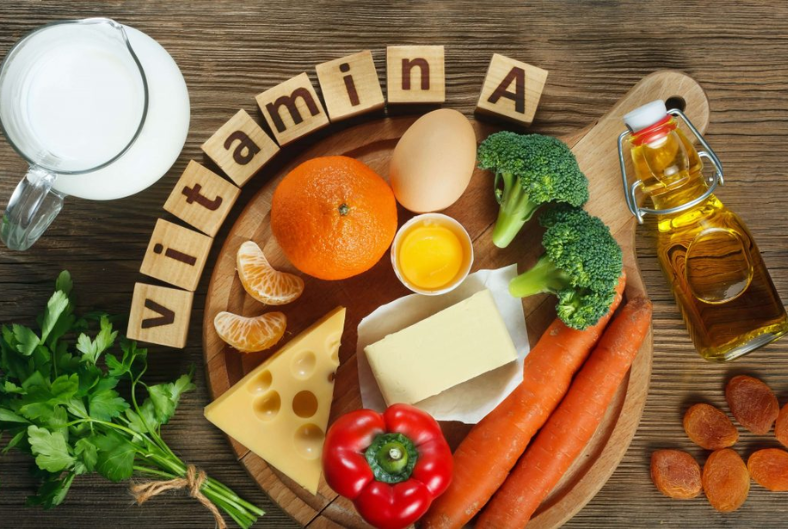A well-balanced diet is the cornerstone of a healthy lifestyle, and ensuring an adequate intake of essential vitamins is key to supporting various bodily functions. Among these, Vitamin A plays a crucial role in maintaining healthy skin, a robust immune system, and optimal vision. Incorporating foods rich in Vitamin A into your diet is a proactive step towards overall well-being. Let’s know these top 10 foods that are abundant in this vital nutrient, which can make you avoid vitamin A supplements.
Sweet Potatoes
Sweet potatoes are not only delicious but also a powerhouse of nutrients, including beta-carotene, a precursor to Vitamin A. Beta-carotene is converted into Vitamin A in the body, promoting healthy skin and boosting immune function, thus emphasizing importance of vitamin A for skin. Adding roasted sweet potatoes to your meals provides a flavorful and nutritious Vitamin A boost.
Carrots
Carrots are well-known for their high beta-carotene content, contributing to their vibrant orange color. This antioxidant-rich vegetable supports eye health and helps maintain clear vision. Including raw carrots in salads or enjoying them as a crunchy snack is an easy way to enhance your Vitamin A intake.
Spinach
Dark leafy greens, such as spinach, are not only rich in iron but also an excellent source of Vitamin A. Whether sautéed, added to salads, or blended into smoothies, incorporating spinach into your diet is a delicious way to support your overall health.
Mangoes
Mangoes are not just a delightful tropical fruit; they are also packed with beta-carotene. Indulge in the sweet and juicy goodness of mangoes to boost your Vitamin A intake while satisfying your taste buds. Mangoes can be enjoyed on their own, added to fruit salads, or blended into smoothies.
Eggs
Eggs are a versatile and protein-packed food that also contains Vitamin A in the form of retinol. Including eggs in your diet provides various essential nutrients, supporting both eye health and overall well-being. Whether scrambled, boiled, or as part of a tasty omelet, eggs are a nutritious addition to any meal.
Cod Liver Oil
For those who are open to supplementing their diet, cod liver oil is a potent source of Vitamin A. Along with Vitamin D and omega-3 fatty acids, cod liver oil offers a comprehensive health boost. However, it’s essential to consult with a healthcare professional before incorporating any supplements into your routine.
Cantaloupe
Cantaloupe, a refreshing and hydrating melon, is rich in beta-carotene. Enjoying slices of cantaloupe as a snack or adding it to fruit salads provides a sweet and nutritious way to increase your Vitamin A intake.
Pumpkin
Pumpkin, another member of the beta-carotene-rich family, is not only a fall favorite but also a nutritional powerhouse. From pumpkin soups to roasted pumpkin dishes, there are countless ways to incorporate this versatile vegetable into your meals and elevate your Vitamin A intake.
Red Bell Peppers
Red bell peppers, although not as commonly associated with Vitamin A as their orange counterparts, are still a valuable source of this essential nutrient. Packed with antioxidants, red bell peppers contribute to skin health and overall immune support. Enjoy them in salads, stir-fries, or as a crunchy snack.
Apricots
Apricots, whether fresh or dried, are a delectable source of beta-carotene. These little fruits make for a convenient and portable snack, and dried apricots can be added to cereals or enjoyed on their own for a sweet Vitamin A boost.
Conclusion
Incorporating Vitamin A-rich foods into your diet is a flavorful and enjoyable way to support your overall health. From vibrant vegetables like sweet potatoes and carrots to tropical fruits like mangoes and cantaloupe, the options are diverse and delicious. Whether you prefer savory or sweet, there are numerous ways to include these nutrient-rich foods in your meals, ensuring a balanced and nourishing diet for optimal well-being.

